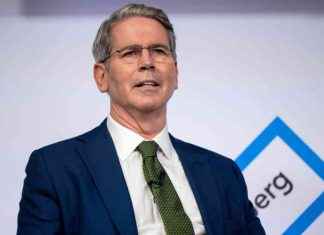Canada’s please-don’t-hurt-us pilgrimage to Trumpland continues.
It started last Monday with Defence Minister Harjit Sajjan. It will climax next Monday when Prime Minister Justin Trudeau treks to Washington to pay homage in person to U.S. President Donald Trump.
Sandwiched in-between are the visits by Foreign Affairs Minister Chrystia Freeland and Finance Minister Bill Morneau.
All are tasked with delivering the same message to the new Trump administration: Please don’t screw us; we’re your best pals.
Sajjan pointed out that Canadian and U.S. troops have been fighting together since World War I. He politely didn’t mention that the Americans took three years to join that war.
He also didn’t mention that Canada chose not to sign onto either the Vietnam War or George W. Bush’s 2003 invasion of Iraq.
But the idea was clear: Sure, we know that Trump wants Ottawa to double its defence spending in order to meet NATO targets. But give us a break anyway. We’re not Luxembourg. We’re Canada.
Freeland’s job it seems was to play the rhetorical heavy — perhaps in response to a new poll showing that 58 per cent of Canadians want the Liberal government to get tough with Trump in any trade dispute.
She used words like “forceful” when talking to reporters and won headlines at home for suggesting Wednesday that Ottawa might do something if Trump slaps threatened tariffs on Canadian goods entering the U.S.
But as my colleague Tonda MacCharles has reported, Freeland very carefully didn’t say what Ottawa might do, insisting only that it “would respond appropriately.”
In particular, neither she nor her staff ruled out the idea of avoiding immediate retaliation and instead appealing any new U.S. tariffs to dispute resolution panels, either through the World Trade Organization or the North American Free Trade Agreement.
Which would be appropriate but not particularly dramatic.
As for Morneau, the gist of his message was contained in the title of a talk he gave at Georgetown University on Thursday morning: Partners in Prosperity.
As he told reporters later, Trump and Trudeau both want the same thing: a strong middle class.
Morneau also repeated Ottawa’s now familiar mantra: Canada is the top export market for 35 U.S. states. Nine-million American jobs depend on those exports. Why would any rational person want to mess with that?
Why indeed. But then why would any rational person want to build a wall along the U.S. border with Mexico? The point is that the current U.S. president wants to do both.
Will the familiar mantras work once Canada and the U.S. get down to renegotiating NAFTA, as Trump has demanded? I’m not sure they will.
Take Michigan. It’s one of the 35 states for which Canada is the No. 1 export market. But the state imports twice as much from Canada as it exports, a fact that may not sit well with mercantilist Trump.
More to the point, Michigan’s top exports are auto parts sent across the border to be assembled in Ontario. A protectionist like Trump might argue that more American jobs would be created if U.S. auto companies were compelled to move their assembly plants from Windsor to Detroit.
Under that scenario, Michigan would still manufacture auto parts. But it would use them at home rather than export them to Canada.
All of which is to say that the partners-in-prosperity strategy might not work.
Canada has long argued that it should have special status within the American sphere. Most of the time, Washington has been willing to grant it. The original Canada-U.S. Free Trade Agreement and later NAFTA were expressions of this. Ottawa’s hope is that if it kowtows enough, special status will survive a renegotiated NAFTA.
Perhaps the Liberal government is correct. Perhaps the U.S. will not insist on impossible demands as the price of renegotiating NAFTA.
Perhaps Trump will be charmed by celebrity Trudeau as he once was charmed by Bill and Hillary Clinton.
Perhaps if we agree to toe the Trumpian line in the United Nations and elsewhere, we will be spared.
But if I were Trudeau, I’d want something else up my sleeve. Maybe the prime minister could persuade his stylish wife, Sophie, to model shoes designed by Trump’s daughter Ivanka. That might work.
Thomas Walkom appears Monday, Wednesday and Friday.
Thomas Walkom appears Monday, Wednesday and Friday.
The Toronto Star and thestar.com, each property of Toronto Star Newspapers Limited, One Yonge Street, 4th Floor, Toronto, ON, M5E 1E6. You can unsubscribe at any time. Please contact us or see our privacy policy for more information.
Our editors found this article on this site using Google and regenerated it for our readers.





